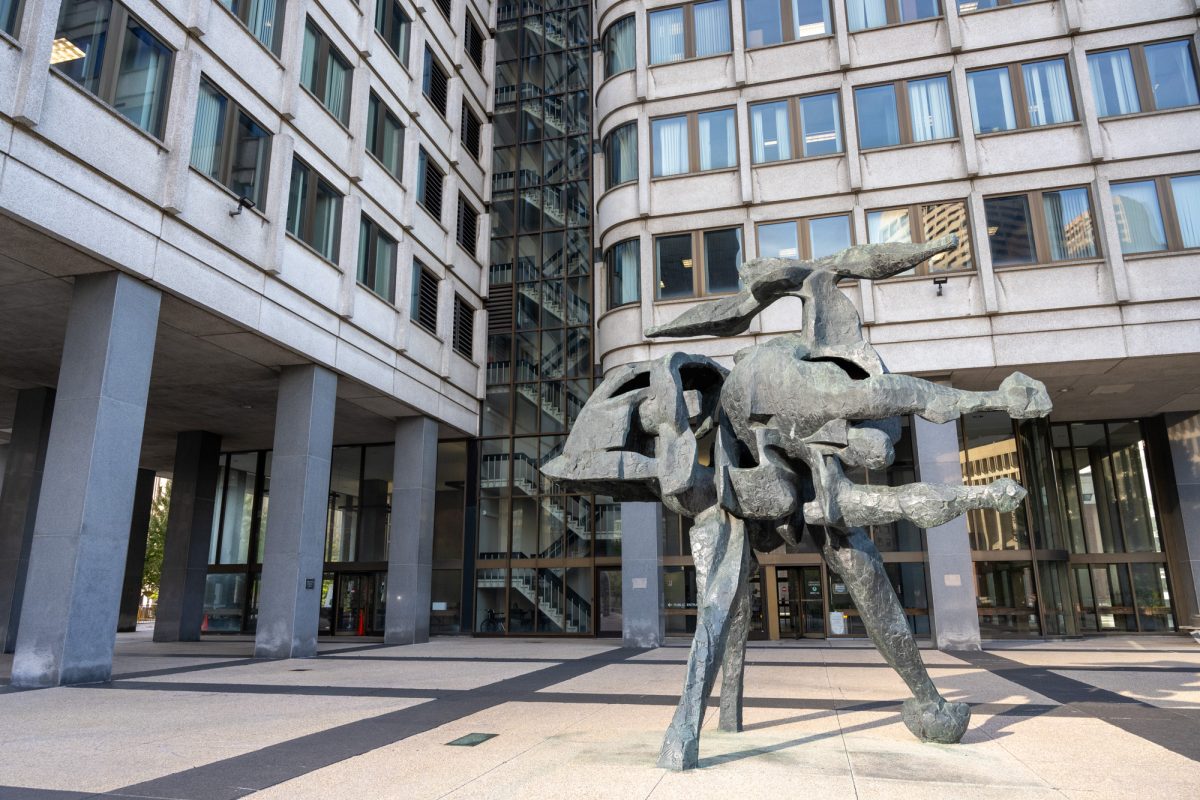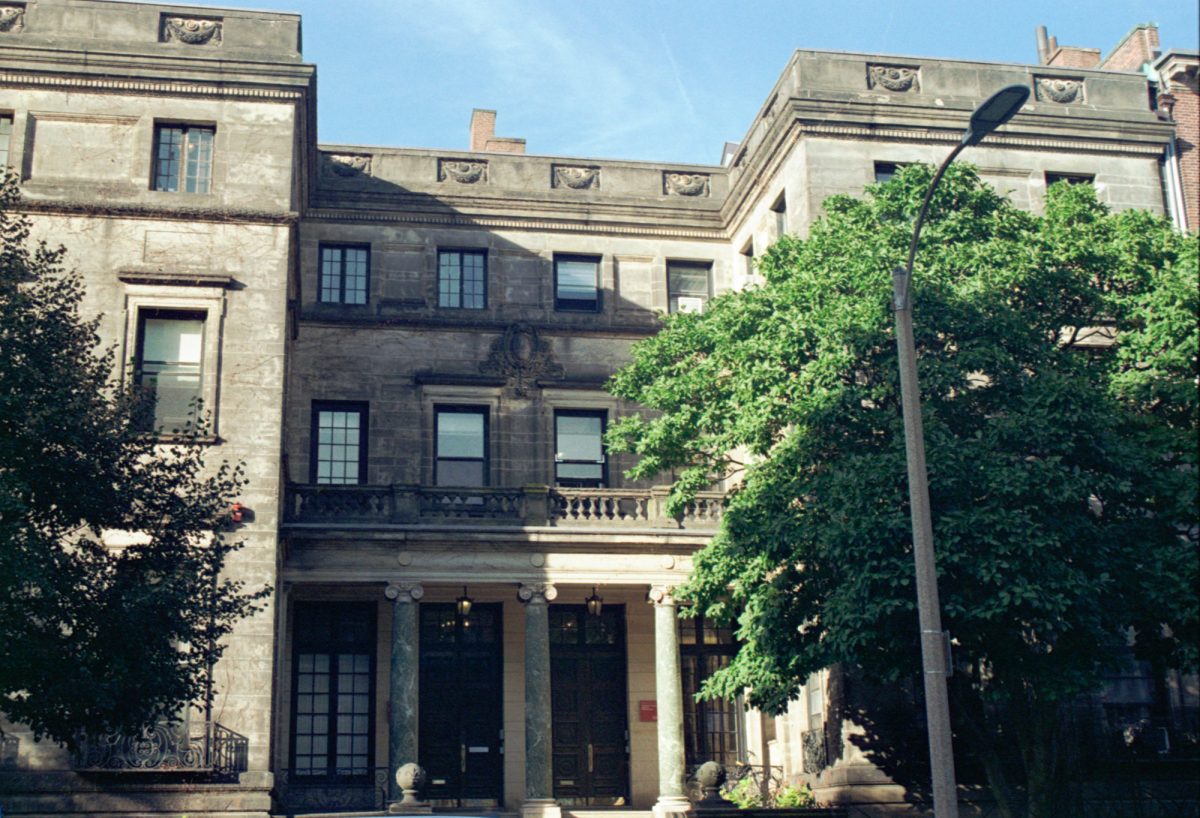The theological and historical legacy of Dietrich Bonhoeffer, the Christian martyr arrested and hanged for plotting the assassination of Adolf Hitler, was evaluated yesterday during a day-long symposium at the School of Management.
“His fight was to bring down a regime that he thought was inimical to the future of mankind,” said Boston University Chancellor John Silber, who sat on a panel that discussed Bonhoeffer’s historical and political contributions. “All that effort was with an eye toward future generations.”
Bonhoeffer was born in February 1906, in Berlin, Germany. When he turned 17, he began to study theology at universities throughout Europe and the United States, returning to Germany to lecture at the University of Berlin in 1933.
But while most Protestants were glad to see Hitler’s ascension to power, Bonhoeffer vocally protested the new German chancellor, going on radio to warn the people of their new leader just two days after Hitler came to power.
Bonhoeffer’s assertion that Hitler would demand the worship of the people proved true when the State Church — the anti-Hitler group to which Bonhoeffer belonged — adopted the “Aryan Paragraph” into its confession, thus prohibiting converted Jews, people of Jewish descent and those married to a Jewish person from joining the parish.
In rebuttal, Bonhoeffer and others founded the Confessing Church, openly expressing disapproval of the pro-Aryan, pro-Hitler State Church. For speaking out against the State Church and for bashing Hitler, however, Bonhoeffer lost his job at the University of Berlin as a lecturer.
To avoid being drafted by the Reich army, Bonhoeffer escaped to the United States in 1939, but stayed just a few weeks before returning to Germany and joining the resistance to Hitler. After his writings were banished by the Gestapo, Bonhoeffer became part of the Abwehr, the military intelligence agency made up of Germans siding politically with Bonhoeffer.
In April 1943, the Gestapo arrested the Abwehr leaders, including Bonhoeffer. Just over a year later, in July 1944, an attempt was made to assassinate Hitler. Though no connection was made immediately following the attempt, it was the Abwehr — specifically Bonhoeffer — who conspired to kill Hitler.
Their plan was first to have Hitler arrested and put on trial for his crimes against the nation before replacing his kingdom with leaders who would work to bargain an end to the war while maintaining some allies.
When documents linking him to the assassination ploy surfaced, Hitler called for Bonhoeffer’s execution and on April 9, 1945, he was hanged in the Flossenburg prison.
At the symposium yesterday, Silber praised Bonhoeffer as a saint, but asked whether he was saintly because he was Christian or a saint who happened to be Christian.
“If one believes Bonhoeffer would stand idly by with the alterations of morality we have seen over the past 50 years, where television becomes the arbiter of what’s proper, where the gay and lesbian alliance have more power than most persons seem able to resist,” Silber said, “when those who advocate abortion on demand in the most casual circumstances, when there are so many people who are engaged in careers that they have no time for children, then one sees the radical nature of what Bonhoeffer’s talking about.
“This is a man who takes seriously the strong teachings of Jesus, and a person whose orientation for this life bears a relationship to another life to come and judges this life in terms of it so he never takes it seriously, the plans and ambitions of this world as other people do.”
Charles Stith, special assistant to BU President Jon Westling and former ambassador to Tanzania, agreed Bonhoeffer’s Christianity was a major factor and influence on later political and religious movements.
“His presence is clearly reflected in the theological underpinnings of the [civil rights] movement,” Stith said.
Stith compared Bonhoeffer’s influence and mission to that of Boston University alumnus Dr. Martin Luther King Jr. Professor of religion and literature Geoffrey Hill also agreed the German’s influence extended beyond his life.
“This particular kind of sacrificial right was used as a teaching onto which others could broaden the disciplines of the church almost to the point where disciplines don’t exist,” Hill said.
History professor Dietrich Orlow joined Silber, Stith and Hill on the panel, which was one of two discussions yesterday and drew a crowd of about 100 people.








































































































